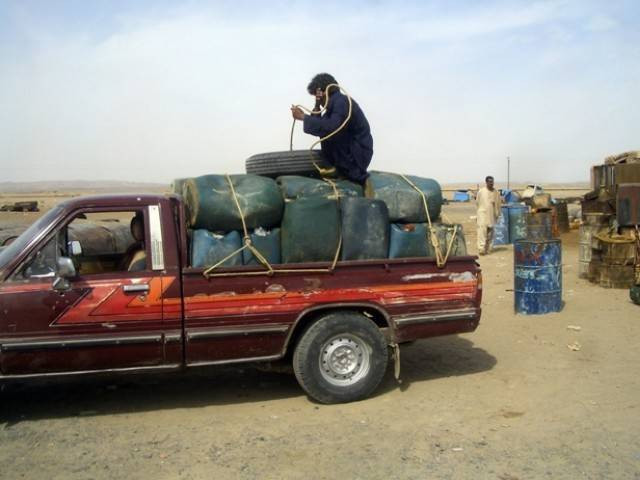Industrialists warn of persistent smuggling in Pakistan
Urge govt to implement policy reforms alongside its enforcement in critical sectors of tobacco, sugar

The industrialists, who have been affected by illicit trade and smuggling for decades, observed that although the government's measures have shown promising results for certain industries, the scale of smuggling in Pakistan remains alarmingly high.
They emphasised that the country is still grappling with only the tip of the iceberg. To truly combat this issue, effective enforcement must be paired with comprehensive policy reforms, aimed at addressing smuggling at its roots. Without such reforms, efforts to curb smuggling will continue to be inadequate.
They said that recently Prime Minister Shehbaz Sharif revealed that, following stringent measures against smuggled fuel and a reduction in petroleum prices, the sale of petroleum products had surged to a record 1.58 million metric tonnes in the past 25 months. This represents a 15% year-on-year increase, signalling a revival in the energy market. This proactive approach to curb fuel smuggling and focus on expanding digital tools for revenue monitoring were highlighted as key elements in this success.
"The ongoing push for the Federal Board of Revenue's full digitisation could be a game-changer for revenue collection in Pakistan," said Osama Siddiqui, a macroeconomic analyst, adding that the digital overhaul aims to improve the monitoring and tracking of taxable goods and services, reduce corruption, and streamline the tax collection process. However, he stressed that while the government's focus on energy sector reforms is commendable, other critical sectors, such as tobacco and sugar, also require urgent attention.
He emphasised that the long-delayed "Track and Trace" system, which aims to monitor the sales and production of key industries, including tobacco and sugar, has yet to be fully implemented. This system, which was supposed to be rolled out to monitor five major industries, has faced significant delays. The absence of full-scale implementation of this system, according to Siddiqui, is a major contributor to the growing illicit trade in several sectors, particularly tobacco.
However, an FBR official said that the introduction of the Track and Trace System in the tobacco sector alone has significantly reduced tax evasion, leading to a revenue increase of over Rs60 billion annually.
In recent years, the government has prioritised strengthening border controls, increasing penalties for smugglers, and implementing technology-driven solutions to curb illicit trade. The FBR in particular, has been pivotal in introducing track-and-trace systems in industries like tobacco, sugar, and fertiliser.
The Pakistan Customs Department has also tightened security along key entry points, including the Afghan and Iranian borders. Advanced scanning equipment, increased personnel, and a new border management system have improved detection rates for smuggled goods.
Nevertheless, Siddiqui said that the government's crackdown on smuggled petroleum products has had a noticeable impact, with the energy sector showing strong growth. However, a similar approach is urgently needed in the tobacco industry, where illegal production and sales have ballooned". He pointed out that the market share of illicit tobacco products has surged to around 55%, resulting in an annual revenue loss of approximately Rs300 billion to the national exchequer.
UAE based economist Ahmad Aziz Subhani said that the digitalisation efforts within the FBR are crucial, and they must be matched with equally strong actions in sectors where revenue leakage is rampant. "The government's success in revitalising the energy market through strict enforcement should serve as a model for other industries, particularly those dominated by informal markets," he said
He called on the government to take a comprehensive approach to further digitisation and strict enforcement across all sectors, which have become a significant drain on the country's finances. "With an ongoing commitment to reducing smuggling and improving revenue collection, Pakistan could potentially recover billions of rupees annually, helping to stabilise its economy and secure long-term growth," Subhani added.



















COMMENTS
Comments are moderated and generally will be posted if they are on-topic and not abusive.
For more information, please see our Comments FAQ